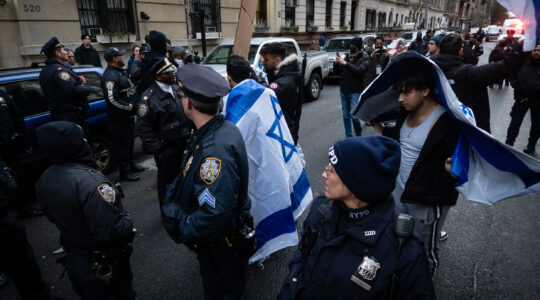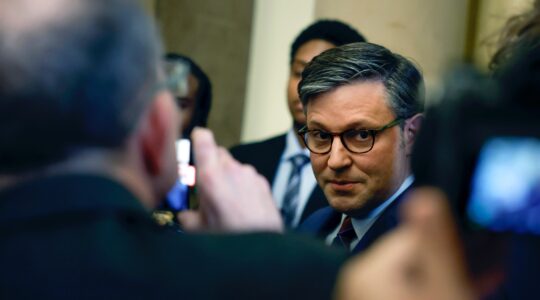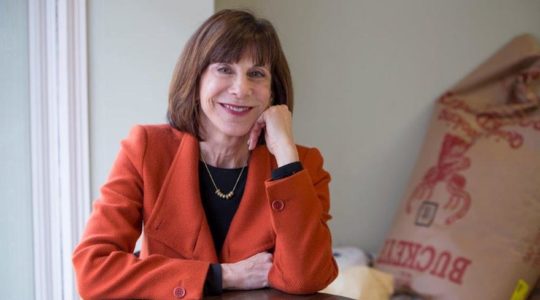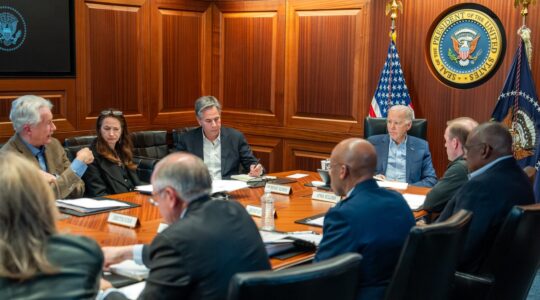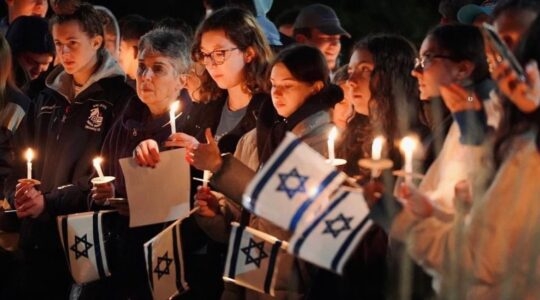BOSTON (JTA) – The local chapter of the Workmen’s Circle is taking the lead in a new effort to persuade an Islamic group and a pro-Israel organization to forget their legal wrangling and try to talk out their differences.The Islamic Society of Boston and the David Project have been battling over the construction of the Islamic Society’s $20 million mosque and cultural center, slated to be the largest mosque in the Northeast.The dispute dates back to October 2003, when the David Project and others began raising questions about the mosque based on Boston Herald articles alleging that past and current leaders of the Islamic Society had ties to groups such as the Muslim Brotherhood. The articles also outlined anti-Semitic statements made by some Islamic Society leaders.In 2005, the Islamic Society filed suit against the Herald, the David Project and others, accusing them of colluding to defame the group and its leaders. Among the defendants is the Investigative Project, an anti-terrorist research group, and its director, Steven Emerson. Some claim that the Islamic Society is mirroring attempts by Islamic groups across the country to use lawsuits to stifle legitimate questions about potential ties to extremists. The suit “could stifle speech about the views and conduct of leaders of certain Islamic organizations who have too often held themselves out as ‘moderates’ when they were defending, justifying and sometimes funding extremist organizations,” attorney Floyd Abrams wrote in an e-mail to JTA.Abrams, a prominent constitutional lawyer, is representing Emerson and the Investigative Project.One of the individuals cited in the articles that led to the lawsuit was Abdurahman Alamoudi, a founder of the Islamic Society in 1982. Alamoudi is serving a 23-year prison term for his admitted role in plotting to assassinate the Saudi crown prince. The Islamic Society says it has had no relationship with Alamoudi for 20 years.Others cited in the articles or by the David Project include Sheik Yusuf al-Qaradawi, an Islamic radical who is popular in Britain but has been banned from visiting the United States since 1999. Other questions concerned the sale price of the land for the mosque. It had been appraised at about $2 million but was transferred from a city agency to Islamic Society trustees for $175,000, along with an agreement that the society would provide certain benefits to the city and a nearby community college. The David Project’s attempt to dismiss the Islamic Society suit was denied and is under appeal, as is a suit challenging the legitimacy of the land deal filed by a local resident and backed by the David Project. The Workmen’s Circle held a private meeting last month that included other Jewish community groups, the Islamic Society, a David Project board member, academics and religious leaders involved in trying to resolve the dispute, a local Jewish newspaper reported. That followed a public forum on the dispute the Workmen’s Circle had sponsored three weeks earlier.At the private meeting Dr. Walid Fitaihi, a physician in Saudi Arabia and an Islamic Society board member, apologized for statements he had made in Arabic-language publications, according to Michael Felsen, vice president of the Boston chapter of the Workmen’s Circle.Fitaihi wrote that Jews have “perpetrated the worst of evils” and have “brought the worst corruption to the earth,” according to published translations of his articles.Felsen said the Workmen’s Circle takes a neutral role, and at least 15 rabbis have signed on to the group’s call for mediation. One is Rabbi Toba Spitzer of Congregation Dorshei Tzedek in Newton, the newly elected head of the Reconstructionist Rabbinical Assembly.Spitzer said she was disturbed by the David Project’s rhetoric.”I don’t think the David Project’s views on Islam represent a large portion of the Jewish community,” Spitzer said. “We are raising a different voice.”Influential Jewish communal institutions have expressed disappointment over the Islamic Society going to court. Boston’s Jewish Community Relations Council did not respond to several messages seeking comment, but in an interview with JTA a year ago its executive director said the Islamic Society suit had chilled dialogue between Jewish and Muslim groups.Nancy Kaufman said she was disturbed about the litigation and did not want the Jewish community to be seen as preventing the mosque from being built.”We do want a moderate and pluralistic community,” Kaufman had said.In a joint statement of the JCRC and Combined Jewish Philanthropies that appears on the David Project Web site, the groups say the Islamic Society lawsuit aims to dissuade others from asking legitimate questions.The Anti-Defamation League’s New England regional office was subpoenaed recently by the Islamic Society.”ADL remains convinced that litigation should never be a vehicle to stifle legitimate efforts to raise public concern about bigotry, hatred or extremism wherever they may be found in the Greater Boston community or beyond,” Robert Trestan, the ADL’s Eastern states civil rights counsel, wrote in a statement sent to JTA.The American Jewish Committee reaffirmed its backing of the David Project and other defendants in a March 15 statement. Jessica Masse, the Islamic Society’s executive director, wrote in an e-mail to JTA that the society is willing to mediate the litigation and repeatedly has offered to sit down with the David Project to begin healing the rift in Jewish-Muslim relations.”But for this to happen there must be partners, both of whom are willing to take the risks of peaceful resolution,” she said. David Project attorney Jeff Robbins said the way to improve relations is for the Islamic Society to withdraw its lawsuit.”This is a matter which should be, in the first instance, addressed directly between the parties,” Robbins told JTA. “They’ve made serious charges, accused people of being racist and bigots and Islamophobes.”In a previous attempt to bring the parties together, private talks were held last year at the urging of the Interreligious Committee for Public Life, a group founded by Hebrew College and the Andover Newton Theological Seminary, both located in Newton, Mass. “Our role was not to be partisan [but] rather to encourage informal discussion and then move to mediation rather than litigation,” Hebrew College President David Gordis told JTA.”We really are genuinely saddened by the deterioration” of relations between the Jewish and Muslim communities “and the risks of further deterioration,” he said. “We would like to encourage moderation rather than radicalize people in either community.”
